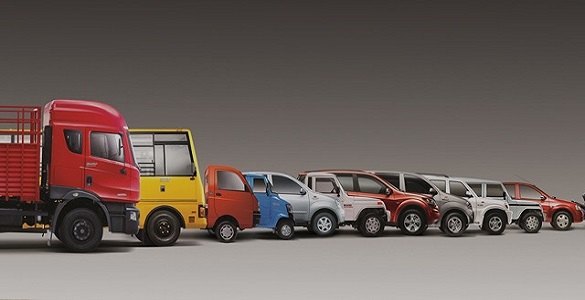Mahindra and Mahindra is trying to capitalize on opportunities opened up by India’s electric vehicles market

Indian automobile giant Mahindra and Mahindra on Friday partnered with Uber to deploy electric vehicles in different parts of India in its platform, reported Reuters.
As part of the agreement, Mahindra will deploy electric vehicles initially in Delhi and Hyderabad. The company will extend the activity to other cities after considering the performance of vehicles in Delhi and Hyderabad.
“For how long this pilot will go on is difficult to predict … It will require adequate progress in engagement with our stakeholders before we plan to expand to other cities,” Madhu Kannan, Uber’s chief business officer for India and emerging markets was quoted as saying by Reuters.
According to a report by The Economic Times, the electric vehicles will include the e2oplus hatchback and the e-Verito sedan.
The deal will give a push to the union government’s efforts to popularise electric vehicles to reduce the rate of pollution.
“Our collaboration with Uber is an important next step to help accelerate the large-scale adoption of electric vehicles on share mobility platforms and meet the nation’s vision for EVs,” said Pawan Goenka, MD, Mahindra and Mahindra.
Mahindra and Mahindra is trying to capitalize on opportunities opened up by India’s electric vehicles market which is showing a positive trend.
“As a pioneer, we would like to be at the forefront, leading this change towards smart and sustainable mobility. Our collaboration with Uber is an important next step to help accelerate the large-scale adoption of EVs on shared mobility platforms and meet the nation’s vision of EVs,” said Goenka.
Mahindra and Mahindra will provide finance, insurance, and after sales service and Uber will initially subsidize the vehicles to its drivers. Charging stations will be set up in collaboration with public and private firms.
Ola, the Indian rival of Uber, had recently launched a pilot for electric cars in the Nagpur and is planning a large-scale roll-out by next year.



